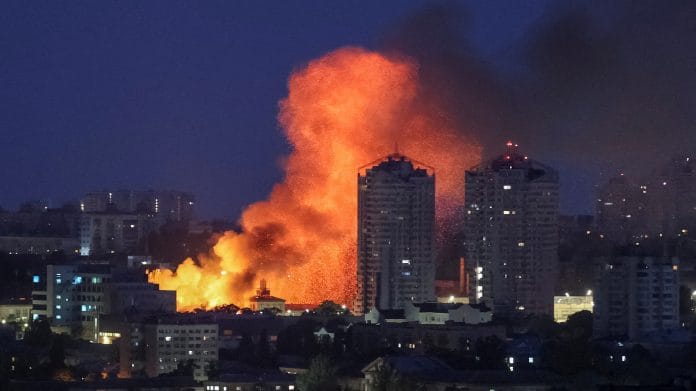Thank you dear subscribers, we are overwhelmed with your response.
Your Turn is a unique section from ThePrint featuring points of view from its subscribers. If you are a subscriber, have a point of view, please send it to us. If not, do subscribe here: https://theprint.in/subscribe/
The Russia–Ukraine conflict, now over three years old, has triggered global uncertainty, disrupted supply chains, and fueled inflation worldwide — especially in developing and underdeveloped countries that saw inflation as high as 15%, and in some cases even 20% or more. Some European countries saw a peak of 10%–11% inflation during this period. Despite such negative consequences and unpredictability, this war shows no sign of ending. But why?
The answer lies in understanding why this war began in the first place.
Putin seeks to consolidate his grip on power. The Kremlin wants to expand its territories and gain control over sea routes for global trade. Ukraine’s desire to join NATO was also considered a major trigger point for Russia.
Or is it more about ego clashes — not only between Russian President Putin and Ukrainian President Zelensky, but also between global powers? On one side, China is backing Russia through funding and military equipment (as accused by the EU), while on the other, the USA and its European allies, also part of NATO, are backing Ukraine through military aid, grants, and loans.
This conflict is becoming more dangerous day by day, and the chances of its conclusion seem very low. It has raised a high level of uncertainty in the global market. In addition to these challenges, the entry of the 47th US President Donald Trump further complicated matters. His use of tariff policies for political gain damaged US ties with allies in Asia and Europe. Japan and South Korea were hit with 25% tariffs, while countries like Pakistan are still negotiating trade deals with the US.
Such irrational and threatening policies, along with Trump’s ambition for global recognition, are no longer hidden. Is this how a global superpower should act — through confused policies, irresponsible speeches, and careless disclosure of high-level diplomatic discussions?
These actions have only damaged the global image of the USA.
Instead of offering trade deals to Russia in exchange for stepping back — which only hurt Putin’s ego — the US should have pushed for meaningful dialogue. It should have encouraged Zelensky to sit at the negotiation table with Russia and reconsider the demand for NATO membership. Yes, such a step might harm the ego of Ukraine, NATO members, and even the US. But difficult decisions are needed if liberal nations truly want healthy cooperation and global peace.
At the same time, blaming India and China for trading with Russia will not help end this conflict. A report by energy think tank Ember (2025 report) revealed that European countries bought Russian gas worth €21.9 billion last year — more than the €18.7 billion they gave in financial aid to Ukraine. Even Trump highlighted this hypocrisy by saying, “Europe has sadly spent more money buying Russian oil and gas than they have spent on defending Ukraine.”
Europe must drop this double standard. It creates distrust among other global partners and weakens the goal of global cooperation.
So, where do we go from here?
While egos and double standards have prolonged the war, global institutions must now step in. Platforms like the United Nations, G20, and BRICS need to play an active role. Instead of just issuing statements and threatening developing countries like India, they must initiate a neutral peace dialogue, form international mediation teams, and work to freeze military escalation. These global forums should ensure all parties are heard equally and pressure both sides toward long-term peace.
India’s stand of peace and diplomacy should be the model for handling such conflicts — especially in today’s unpredictable world. This is not the time for war. The world is already facing colossal problems like climate change, which deserve global attention. Countries should focus on sharing best practices and collaborate on mitigation and adaptation strategies — so we can make our shared home, Earth, a better and healthier place to live.
These pieces are being published as they have been received – they have not been edited/fact-checked by ThePrint.


